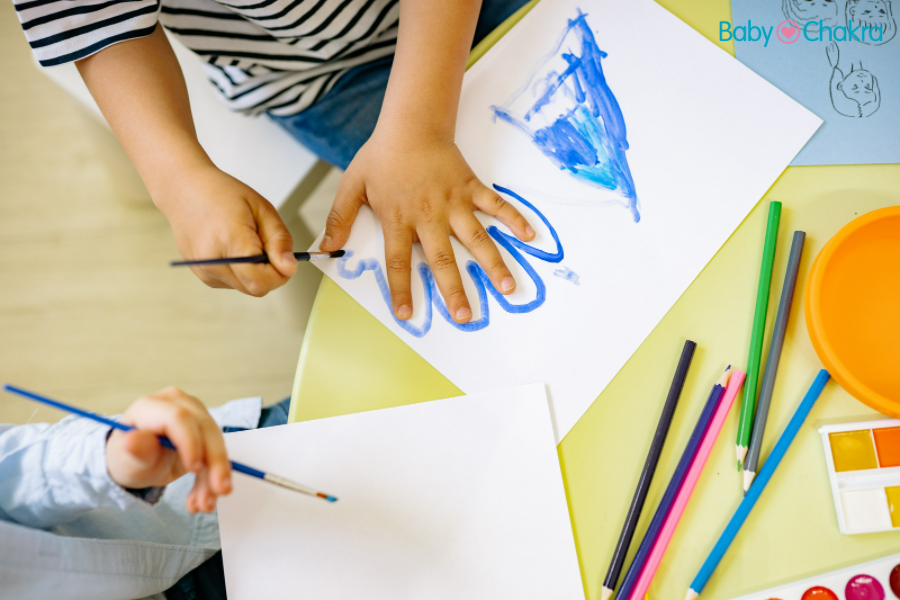
5 Benefits Of Art For Your Child’s Development
26 Jul 2022 | 3 min Read
Sayani Basu
Author | 607 Articles
Children are inherently creative and curious. From the minute they gain control of their limbs, they tend to explore, observe, imitate and try to figure out how things operate and how to control themselves and their environments. They can take almost anything and create a game and an activity using their imagination for hours.
They love to play with colours, smearing them on paper, and sprinkling glitter. They enjoy simply moving paintbrushes across the paper instinctively. However, as kids get older, we tend to focus more on science, mathematics and other scholastic sides of learning, reducing the creative side of learning.
Art is equally important in a child’s development. Read on to know more about the benefits of art in a child’s development.
Benefits Of Art For Your Child’s Development
Your child might learn a lot through exploring the arts and doing art activities. Here are some of the benefits:
- Improves motor skills: Simple actions like scribbling using a crayon or holding a paintbrush might enhance your child’s motor skills.
For instance, drawing a circle, square or cutting with scissors supports the growth of fine and gross motor skills, and develops agility and dexterity in the little ones.
- Enhanced language development: Children indulging in art activities might also get a wonderful opportunity to pick up new words and expand their vocabulary.
For instance, parents can crumble a piece of paper and give it to the little one and refer to it as a ‘ball’. Elementary school children might also begin using descriptive phrases to define their creations, and feelings and even discuss various styles of artwork.
- Builds Inventiveness: Art plays an important role in encouraging children to express themselves without any inhibitions. This assists the little ones to nurture a sense of initiative and innovation.
When children use their imagination, they get to learn a vital life skill of inventing things and seeking out new resources and means to achieve their set goals rather than only following directions.
- Encourages visual learning: Visual learning is a vital part of a child’s learning process. Plus, they tend to learn faster from visuals and graphic sources than from texts.
Sculpting with clay, drawing pictures, and threading beads through a string will help promote visual-spatial skills in the little ones. Thus, they can identify, interpret and implement visual information. Here lie the benefits of art in encouraging visual learning in kids.
- Inculcates decision making: Exploration of art aids to strengthen the critical thinking and problem-solving skills of kids.
For instance, while forming an art piece, the experience of gathering relevant knowledge, assessing alternatives, taking thoughtful decisions and making choices might sharpen the mental faculties of children. It can also invite a child to think, explore, experiment, and try out new ideas. This hones the little one’s analytical and decision-making abilities.
Mastering skills and learning to express themselves in new ways through art helps a child gain confidence and perseverance. Making art is a safe way to discover that it’s alright to make mistakes and that getting things ‘wrong’ can lead you to a whole new idea. This in turn develops self-regulation skills at an early age.
A


Related Topics for you
Suggestions offered by doctors on BabyChakra are of advisory nature i.e., for educational and informational purposes only. Content posted on, created for, or compiled by BabyChakra is not intended or designed to replace your doctor's independent judgment about any symptom, condition, or the appropriateness or risks of a procedure or treatment for a given person.
